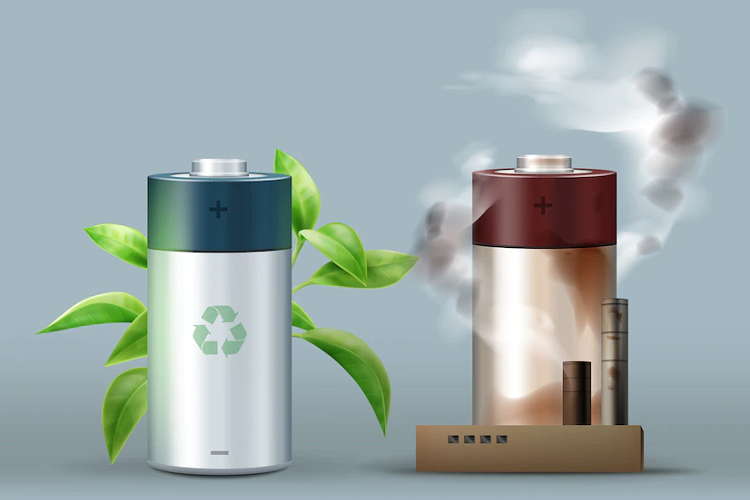What should be considered when disposing of battery chargers?
Who doesn’t know it these days, a number of electronic devices or batteries or rechargeable batteries accumulate in the household and you don’t know what to do with these products after use. In every household there are electrical parts that have to be disposed of over time.
For example, there is an accumulation of battery chargers that become defective or old after a while and have to be disposed of. You can find out exactly how to proceed with disposal in the following sections, in which we show you what you need to consider when disposing of these products.

What should you pay attention to when disposing of battery chargers?
Battery chargers should not simply be disposed of with other household waste. The devices are composed of a wide variety of materials that do not belong in the usual garbage. It is therefore important to ensure special disposal.
Disposing of electronic waste, such as a battery charging cable, with household waste is prohibited. Make absolutely sure that you stick to it and dispose of your devices properly so that no further damage can occur. In the case of professional disposal, it is then examined whether the items are still usable and can be recycled in any way.
If not disposed of properly, the ingredients can endanger the environment. These heavy metals then not only endanger the environment, but can also have negative effects on people, animals and plants. It is very important to dispose of rechargeable batteries or LiFePO4 batteries and battery chargers in a special way.

Why are battery chargers specially disposed of?
At some point, battery chargers will also have to be disposed of because they are either defective or old. The charger should not be disposed of with household waste. In the following section you will find out why it is better not to do this and why this is particularly important. Battery charger, like accumulator and marine battery, belong to electronic devices that have to be disposed of specifically. Since these devices can also contain ingredients that can endanger the environment and therefore also have a negative impact on mankind, plants and animals, it is particularly important to ensure correct disposal. What else is important and where you can dispose of these devices, you will find out in the next sections.
Where can I dispose of defective battery chargers?
Nowadays there are already special disposal points in every city to dispose of your battery charger properly. Dealers are also required to resume the devices they previously sold to consumers. Among other things, Deutsche Post offers an Electro-Return service to get rid of small electronic waste.
The Electro-Return service is a free opportunity for every consumer to dispose of their electronic waste in a professional manner. Deutsche Post offers the service for environmental reasons and you can dispose of your battery charger at mailboxes and branches, for example. With the help of disposal companies, these electrical parts can then be processed again.
For you as a consumer, the process is pretty simple. First download a shipping label, print it out and stick it on an envelope. You can now fill the envelope with electrical parts and, for example, throw it in a mailbox without franking. In addition to the Deutsche Post service, there are other contact points where you can take care of your electrical parts. These are normally accepted free of charge by public service providers. The directives of the European Parliament state that manufacturers of electronic equipment are responsible for taking back old equipment.
If you are currently in the situation of buying a new solar powered generator supply, you can also give your old power supply to this retailer so that they can take care of disposal and carry out professional disposal.

How are batteries properly disposed of?
Batteries and accumulators are often found in everyday use these days and therefore very often end up as waste. It is therefore all the more important to ensure proper disposal. You will find out exactly how this works and what things to look out for in the following.
Batteries contain a very small amount of hazardous material such as mercury, cadmium or lead. Some of the substances are toxic and could therefore endanger the environment. For this reason, special disposal is essential. Another important point is that when they are disposed of with household waste, important valuable resources are lost that could be recovered by recycling the batteries. These resources would be dispensed with if they were disposed of in household waste.
The Battery Ordinance has been in place since 1998, stating that all manufacturers and retailers must take back old batteries and rechargeable batteries. However, consumers are also obliged to return all batteries to retailers or the appropriate collection points. Since 1998, no battery or rechargeable battery can be disposed of with household waste.
The trade must refer to a future return and take the batteries back free of charge. The old or defective batteries are then sent for recycling.
What happens to the batteries during the recycling process?
Certain things are valued during recycling, which are described in the following section. Important valuable resources can be recovered through this process. In the recycling process, great importance is attached to the recovery of metals such as nickel, lead, mercury, cadmium, copper and iron. Thermal processes are used to process these metals. Batteries can be used directly in secondary smelting, otherwise steps must be taken in advance to separate disruptive substances. If you dispose of batteries in household waste and do not use the right solution, important valuable resources can also be lost because the recycling process is then dispensed with.
What to do if the dealer doesn’t want to take back old batteries?
It is quite possible that the dealer refuses to take back old batteries. Nowadays, such behavior of a trader is no longer correct, since he himself has to fulfill certain obligations.
If a retailer refuses to take back your products, you can always remind the retailer of the obligation under Section 5 of the Battery Ordinance that they must be taken back. So there is no other choice but to accept the devices. Otherwise, we would advise you to buy your devices from a different retailer next time.














+ There are no comments
Add yours